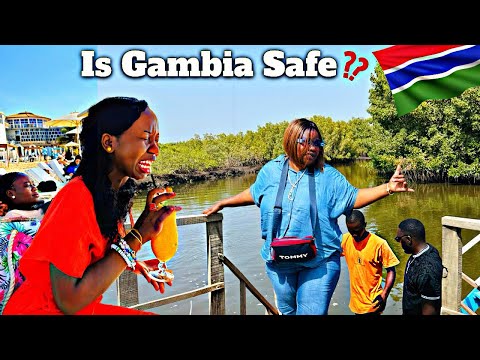
The Gambia, affectionately known as the Smiling Coast of Africa, is a vibrant country with a rich cultural heritage and breathtaking natural beauty. This smallest country on the mainland African continent offers a unique blend of beaches, wildlife, and historical sites. As you plan your trip in 2024, here are essential things you should know to make your experience smooth and memorable.
#### 1. Visa Requirements and Entry Formalities
Before traveling to The Gambia, check the visa requirements. Many nationalities can obtain visas on arrival for short visits, but it is always best to consult the nearest Gambian embassy or consulate prior to your departure. Also, ensure that your passport is valid for at least six months beyond your date of entry.
#### 2. Best Time to Visit
The Gambia has a tropical climate with distinct dry (November to May) and wet (June to October) seasons. The best time to visit is during the dry season when the weather is cooler and more comfortable for exploring. The peak tourist season runs from November to February, so booking accommodations in advance during this period is advisable.
#### 3. Currency and Payments
The official currency in The Gambia is the Gambian Dalasi (GMD). While major hotels and restaurants may accept credit cards, cash remains king in many places, especially in local markets and rural areas. It’s advisable to carry enough cash but also watch out for currency exchange rates. ATMs are available in urban areas but less so outside major cities.
#### 4. Health Precautions
Before traveling to The Gambia, consult with a travel health specialist about vaccinations such as yellow fever, typhoid, hepatitis A and B, meningitis, and routine vaccinations updating like tetanus-diphtheria-pertussis vaccine (Tdap). Malaria prophylaxis is strongly recommended due to year-round risk throughout the country.
#### 5. Language and Communication
English is the official language of The Gambia which makes communication relatively easy for English-speaking tourists. However, multiple ethnic languages such as Mandinka, Wolof, and Fula are widely spoken too. Learning basic greetings in these languages can enrich interactions with locals.
#### 6. Cultural Sensitivity
The Gambian society values respectfulness immensely; therefore it’s crucial that visitors understand some basic local customs and dress modestly especially when visiting rural communities or religious sites.
#### 7.Transportation Within The Country
Local transport options include taxis (both shared ‘sevens’ or individual), buses which operate within cities as well as between towns; however they can be crowded at times during peak hours.. Hiring private vehicles from reputable companies might be more convenient for families or groups seeking comfort.
#### 8.Accommodation Options
From luxury resorts along the Atlantic coast near Bakau or Kotu Beach resort areas all way through economical guesthouses found across various towns – there’s something fitting everyone’s taste budget within The Gambian hospitality sector..
####9.Tourist Attractions Not To Miss:
– **Abuko Nature Reserve:** Just a short drive from Banjul city center lies Abuko Nature Reserve – an excellent spot for wildlife enthusiasts.
– **Kunta Kinteh Island:** Explore this UNESCO World Heritage Site that serves as poignant reminder history slave trade era.
– **Serekunda Market:** Dive into vibrant colors sounds smells largest market where one can find everything from fresh produce textiles traditional crafts.
– **Tanji Fish Market:** Witness daily bustle fish market where locals come sell their catch day — truly immersive experience!
### Conclusion
A trip planned out well understanding what expect will ensure enjoyable trouble-free journey into heart West Africa – welcome warmth hospitality awaits you at every corner Smiling Coast!
